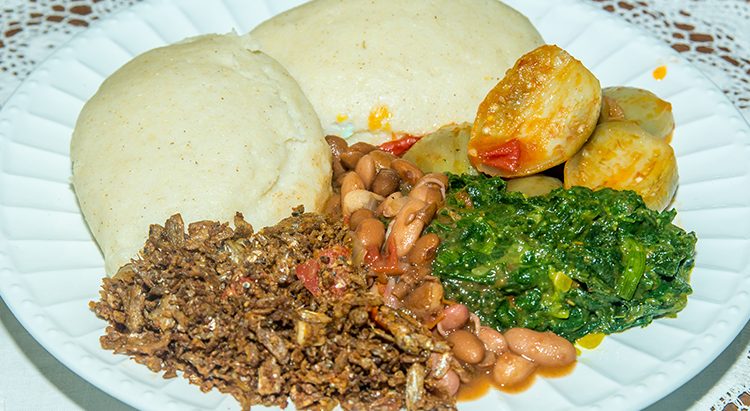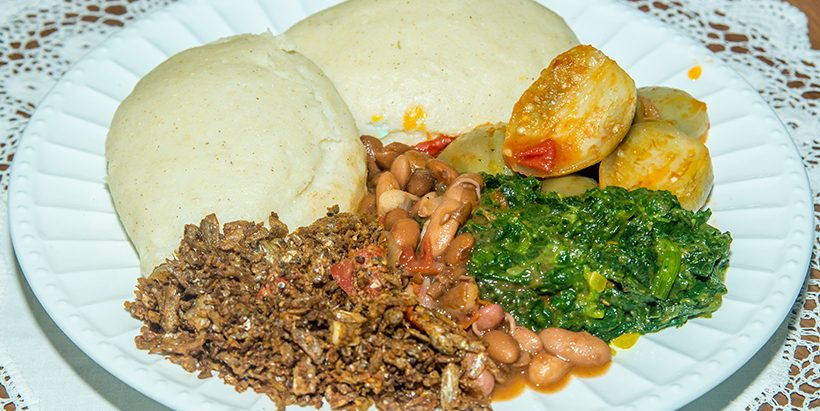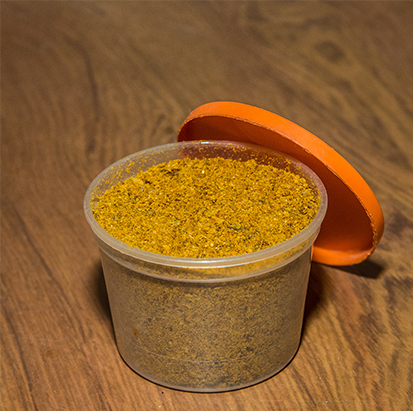
Addressing nutritional deficiencies using dried small fish
Fish, especially small fish, is an important animal food source among vulnerable populations and increases the nutritional quality of their diets. Dried small fish has been found to significantly enhance nutrient deficiencies in the diets of pregnant or lactating women and young children.
A recent study carried out by a group of researchers, including IITA’s Senior Scientist and gender focal point, Steven Cole, assessed the nutrient content of two locally developed fish‐based recipes, fish powder and fish chutney, and calculated the contribution of calcium, zinc, iron, and docosahexaenoic acid (DHA) to the diets of pregnant and lactating women and children between 6 and 24 months.
The study found that processing small fish into powder achieved the optimum nutrient density of iron, zinc, and calcium for the diets of children between 6 and 11 months old, a stage when adequate nutrient intake is highly critical. Fish powder is primarily essential fatty acids; one serving contains 50 mg of omega‐6 fatty acids and 121 mg of omega‐3 fatty acids.
The diet of infants and young children can be improved by adding small amounts of fish powder, which provides additional iron, zinc, calcium, and DHA to a meal. A single 10 g serving of fish powder provides 12% of the iron recommendation for infants 6–11 months and 19% for children 12–24 months.
Furthermore, micronutrient deficiencies (also known as ‘hidden hunger’) can be combatted by consuming small dried fish as part of a daily meal in the first critical 1000 days of life.
The study also showed that the diets of pregnant and lactating women could be improved by the addition of fish chutney, which provides calcium and some iron and zinc. The fish chutney contains 1.9 mg of iron, 2.2 mg of zinc, and 510 mg of calcium per 30 g serving. Fish chutney also boosts women’s calcium intake and provides almost 2 g of fat. Adequate nutrients help pregnant and lactating women increase their energy and support the development of a healthy fetus, and compensate for the increased demand for milk production.
In line with IITA’s missions to enhance food security and reduce hidden hunger, small fish, which are culturally acceptable, can be considered as one of the foods to eradicate malnutrition when designing programs in low- and middle-income countries for nutritionally vulnerable populations.


